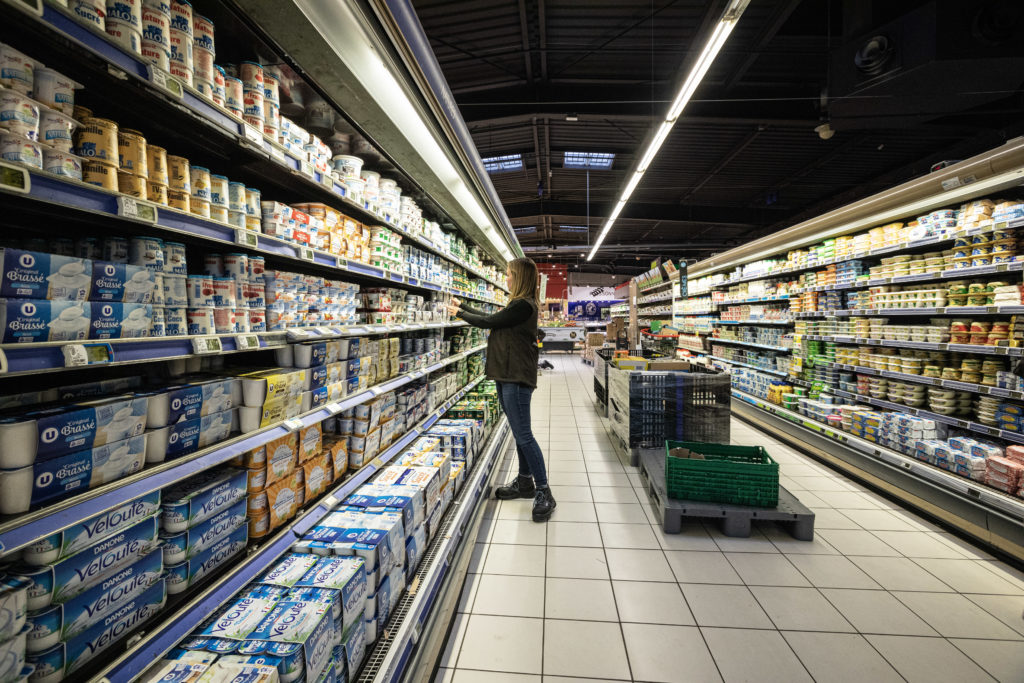Every year, 10 million tons of edible products are being thrown away in France, and an estimate of more than 1.3 billion tons in the world. Knowing what is at stake environmentally and socially, it only makes sense to try and fix it. Governments have been making progress: in some countries, supermarkets (bigger than 400 m²) have the legal obligation to donate unsold goods to charities. Beyond that, the retail industry has everything to win if they really aim for better food waste management: profitability, a better brand image, and more involved employees.
Respecting the law is great. Doing so while not wasting food is even better!
What is currently happening in France is also a worldwide symptom. According to the ADEME (environmental transition agency), almost 10M tons of edible food are wasted, every year in France. It represents 150 kg per person per year, for a cost between 12 and 20 Billion Euros. Food retailers weigh 14% of this amount. Since 2016, it is mandatory for stores bigger than 400 square meters to give their unsold, edible items to charities. This obligation, the “Garot law”, is both ecologically, socially, and economically relevant: retailers obtain tax reductions after giving to charities. But it doesn’t solve all of the equation every food store has to face on a daily basis.There are more and more items on the shelves, and their selling windows are short. It remains complicated to meet every need the customers have without wasting inventory. Too many unsold goods mean a bad economical performance and lots of trash to deal with. But reducing too much represents a rise in inventory shortage.
A food waste management system brings several solutions to each of these steps.
No food waste means more money
On average, every supermarket throws its net revenue away with food waste, each year. Their gross waste ratio is around 1.5% (according to an audit conducted on 1,000 stores between 2017 and 2020), which equals their net revenue. Reducing waste while making sure every unsold item is precious leverage to make sure the net revenue keeps increasing, or just to allow them a better pricing policy for their clients… and a better competitive advantage.
No food waste means more customers
Global environmental consciousness is growing. Everybody is more and more incline to understand and act according to ecological views. This is about branding, about being a better and more modern store than competitors. In 2019, in France, 83% of retail customers said they wished their stores were more involved in producing less packaging and fighting food waste. 70 % of them sad they would be more faithful to a brand because of this. (Rubikloud, November 2019)
No food waste means more dedication
Openly fighting environmental challenges is a great way to involve retail workers, develop their loyalty, and attract newcomers. Brands are viewed more positively, and it is easier for them to empower their teams from inventory management to the displaying process.

We have been building tools to help with every step
Since 2012, we have been building our solutions to help retailers. We are able to reduce food waste in a profitable way while helping with the daily challenges of retail employees. All these tools were built to help save time and money, in only 4 steps.
1. Fast detection for items about to expire
Every day, thousands of products are reaching their sell-by date. This is a time-consuming challenge for every store. Smartdetection is a software allowing the instant location of goods about to reach the end of the freshness commitment. It saves a lot of time, and is less stressful for teams, and guarantees cleaner shelves.
2. Instant decision for the right way to dispose of them: markdown, donation or baskets
Giving to charities is the fastest way to not waste anything. Sadly, this is also not the best option out there when looking for the best sales performances. Smartdecision simplifies this complex choice using artificial intelligence. It helps with the best markdown rate and the best procedure, instantly. Its algorithm is capable of considering the weather, foot traffic, days of the week, previous sales, if a charity is coming this day or not… It maximizes profits and reduces trash to a minimum amount.
3. Discount or donation via a fast labeling station or a digital donation helper
Every product of the store is recognized. Smartdiscount is a mobile labeling station that will help apply discounts at a fast rate and allow a perfect tracking. Smartdonation helps with the big paperwork amount needed for donations.
Both of them are linked to the inventory and able to recognize every product of the store. Discounted or donated products are highlighted so that section managers are able to adjust.
4. Keep improving with tracking and optimisation
Each store has a dedicated Customer Success Manager to help with its daily needs. Analytics are sent on a monthly basis and available on-demand. We help with communication, display, training, and optimization. All of this allows our clients to never be alone, but totally autonomous.
